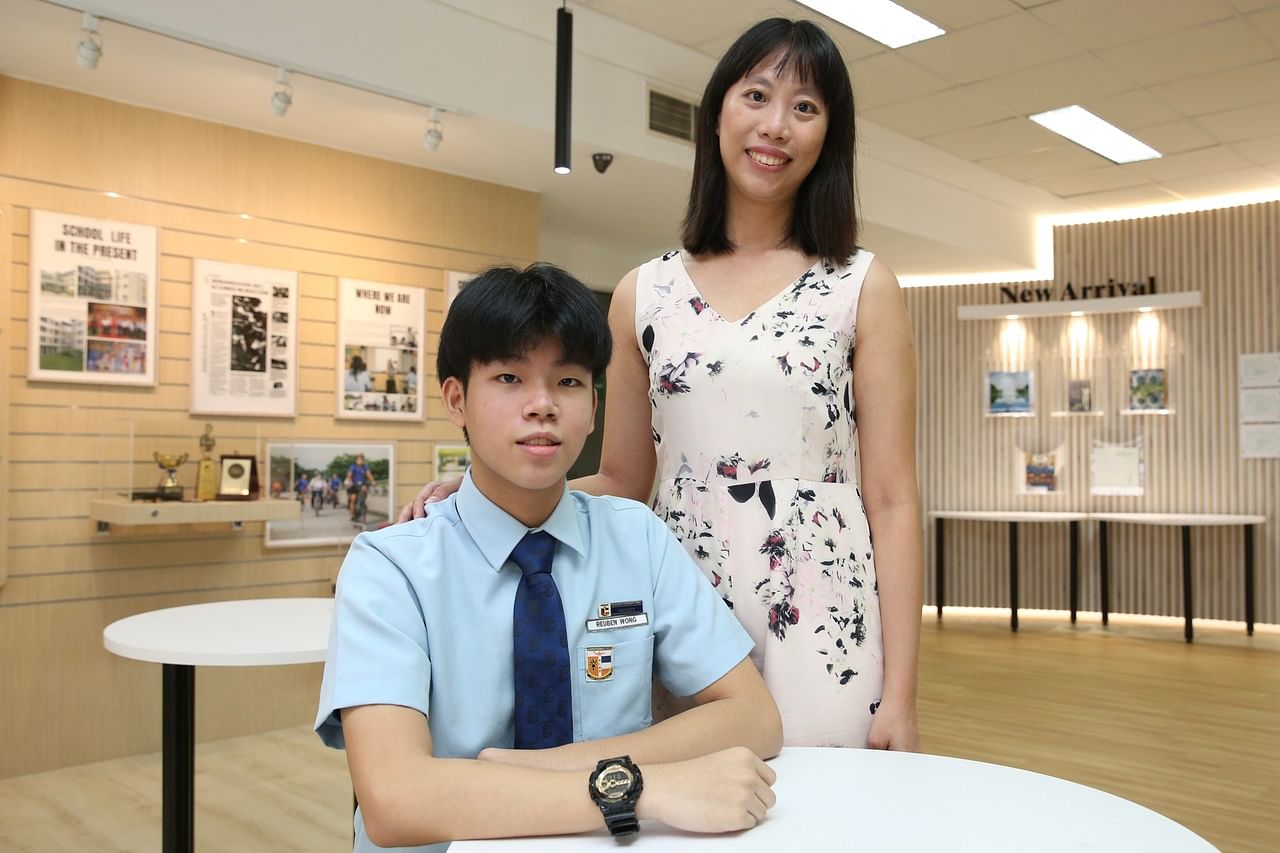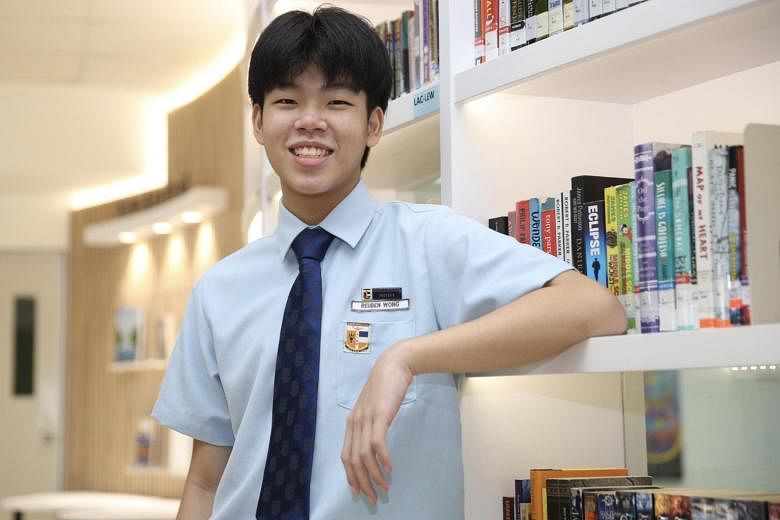SINGAPORE - Secondary 2 student Reuben Wong used to shout at his classmates during group activities as he struggled to manage his emotions.
"When they don't cooperate or do their part I would be angry," he said.
Tensions got so high that his teachers at Serangoon Secondary School stepped in to help him at the end of last year. It took five months of counselling and mentorship for his relations with his peers to improve, and he is now a school prefect and his grades are improving.
The 14-year-old, who was in a programme his school started in partnership with Thye Hua Kwan (THK) Moral Charities last year, attributed the changes to a mentor he could relate to.
The programme comes under the larger Uplift Enhanced School Resourcing initiative, which the Ministry of Education (MOE) has piloted in 23 schools since 2019.
These schools get additional resources such as more teachers as well as referrals to organisations in the community which can support students with greater needs.
From next year, 24 more schools will join the programme. It will expand to about 100 primary and secondary schools in the next few years.
Prime Minister Lee Hsien Loong announced earlier this month that about 13,000 students will benefit from the added resources that schools will receive.
Second Minister for Education Maliki Osman said on Monday (Nov 29) that MOE is tracking the progress of students in the Uplift schemes, in terms of their school attendance, academic results and behaviour. He said the outcomes have been "very promising".
He was speaking to reporters in his first interview reflecting on the past year as chairman of Uplift, a multi-agency task force set up to support vulnerable students and their families. Uplift stands for Uplifting Pupils in Life and Inspiring Families Taskforce.
The needs of students vary from those in financially difficult situations to those with behavioural problems and others who are long-term absentees, he added.
Referring to students who have absenteeism issues, Dr Maliki said: "Schools report to us that they have better attendance rates now."
He added that students with behavioural issues have also shown improvements.
Efforts to strengthen after-school care, especially for students from disadvantaged backgrounds, are paying off, said Dr Maliki.
More primary school pupils have enrolled in school-based student care centres over the past decade, from 3,000 in 2012 to 28,500 this year.
At the secondary school level, some 9,000 students have been part of a programme known as Gear-Up since its launch in 2019, he said.
The scheme provides a space for those who require more structured after-school supervision, befriending and guidance.
In his interview, Dr Maliki said that MOE is also monitoring the progress of these at-risk students in terms of their post-secondary pathways.
"Our hope is all our students will be able to achieve a higher post-secondary education qualification... we hope that with the early support that we're giving these students, they will be able to aspire to minimally attain their higher Nitec education," he added.
Reuben will be taking mobile robotics as an N-level subject next year as he wants to learn coding and wiring skills.
"I want to score high for my N levels and try to gain early admission to the Institute of Technical Education," he said.
He is aiming to take an engineering course at the institute.
He added that he has learnt to relate better to his peers with the help of his mentor and school counsellor.

"I like my THK mentor because he was like me in the past. I get to open up to him about my stress and worries during the one-to-one sessions," said Reuben, who lives with his grandmother and declined to share details about his parents.
"My mentor really helped me to think through my emotions and figure out why I feel a certain way, so I know how to avoid negative situations. He taught me how to communicate with people better by reading their expressions and tone," he added.
"Previously, it was very common for me to get angry easily when I talk to people... but now I'm more careful with my words and actions, and I have made more friends."
Dr Maliki said: "Ultimately, what we want really is to help these children develop their strengths and passion... regardless of the starting point, to help them forge their own success and motivation in life."


